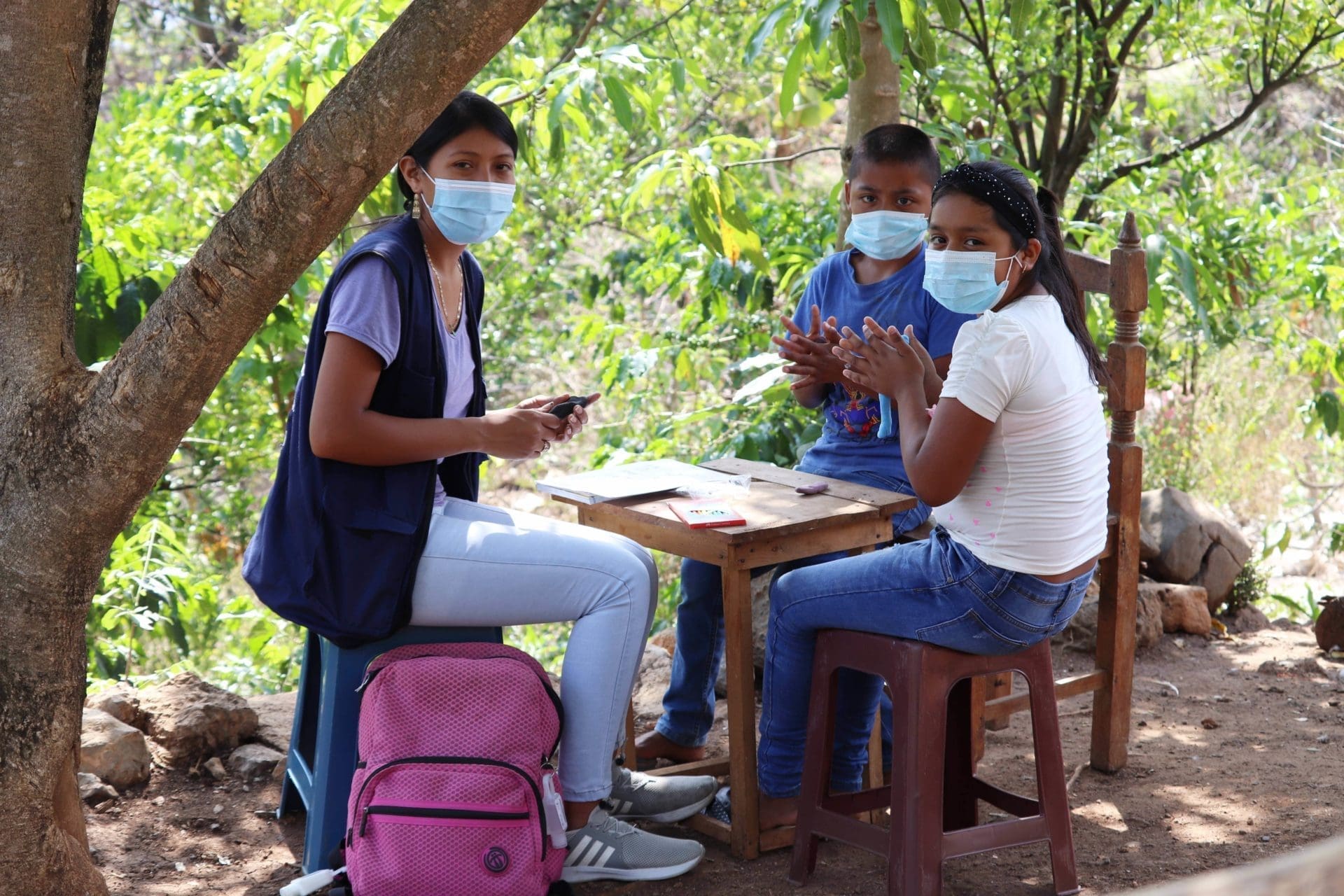Unaccompanied children who return to their countries of origin from the United States face many challenges. Not only do they return to the same conditions that drove them to leave in the first place, but they must deal with the layers of trauma they may have experienced on the journey north, and the many barriers to reintegration back into their families and communities. Children can face grave shame and stigmatization for being perceived as failures for returning.
During a recent trip to Guatemala to visit our local partners, I witnessed these challenges firsthand and the importance of our Child Migrant Return and Reintegration Project. One of the things I love about the project is the long history of our work, especially in Guatemala where KIND has worked on reintegration since 2010. KIND’s project is one of the first to focus on children returning to their home countries after their migration journey has been cut short.
Our partner organizations support and empower children and their families to re-adapt, access education, and connect to the resources they need.With our partner ECAP (Equipo de Estudios Comunitarios y Acción Psicosocia or Team of Community Studies and Psychosocial Action), we visited some of the families that they assist in reintegration. These families live in very remote rural households. The ECAP team was impressive: it was clear they had built strong relationships with children and families. ECAP staff spoke to the families in Mam, an indigenous language of Guatemala. In one of the families we visited, ECAP had helped the son go back to school. One of the key supports that ECAP and our other partner organizations provide is helping children re-enroll in school, which can be very challenging. ECAP also helps teenage children envision their future and create life plans.
We did more home visits to families with another partner, Pop No’j. The Pop No’j staff are devoted to their work and collectively speak five languages. One of the families we visited was a single teenage mom and her baby. We arrived at her remote, rural home after a nerve-wracking car ride through the mountains on narrow, curvy roads and a hike through coffee fields. She and other mothers we met talked about the support they receive makes them feel cared for and not alone. The young mother we met with is involved in Pop No’j’s women’s financial empowerment and savings project which works with women on financial literacy and independence to equip them with the tools they need to decrease their economic reliance on men. It was reassuring to know she was receiving support from Pop No’j and KIND.
Our last visit was to partner Asociacion Colectivo Vida Digna. With Vida Digna, we visited a family with a returned son and daughter who were both receiving support in education and psychosocial services. The daughter is finishing middle school and will be the first in her family to go to high school where she plans to obtain a high school nursing degree. The pride from the family is palpable, and Vida Digna is not only providing the resources so that the children can achieve their educational and professional goals, but also ensuring that the children have the tools needed to thrive in spite of the pressure and newness of breaking down barriers.
KIND’s reintegration work is a lifeline to returned children who otherwise would have no support in trying to rebuild their lives and support in trying to rebuild their lives and support themselves and their families. I saw as I talked to the young people and their families the opportunities and hope for the future that our work provides. I am gratified to be part of this work.


